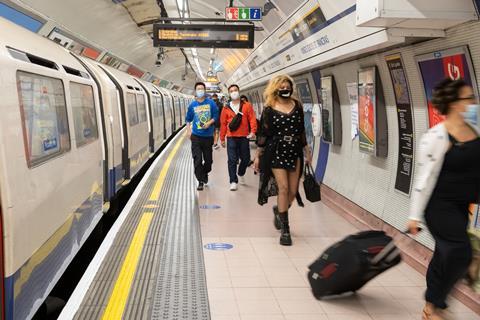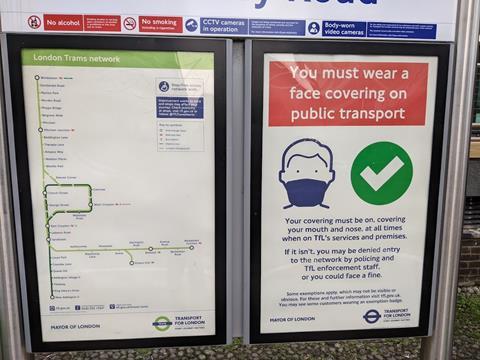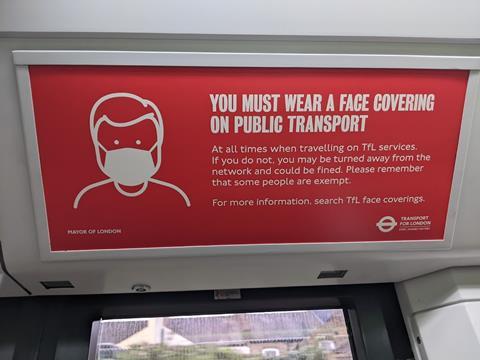
UK: Mayor of London Sadiq Khan has called for ‘good faith’ negotiations on a long-term funding deal for Transport for London after the government agreed a two-week extension of the current funding settlement on the day the previous agreement expired.
Funding is now in place from February 4 until February 18. Secretary of State for Transport Grant Shapps said ‘this short extension will enable us to finalise the terms of a robust settlement’, which would be the fourth during the pandemic.
TfL is heavily dependent on fares income, having received no government funding for day-to-day operations before the pandemic. As a result, it has been hard hit by the coronavirus crisis.

‘Since the start of the pandemic, we have supported the transport network in London with over £4·5bn’, Shapps said. ‘We have recognised the reliance of London’s transport network on fare revenue and government continues our commitment to mitigating loss of fare revenue because of the pandemic.’
Support ‘has always been on the condition that TfL reaches financial sustainability as soon as possible and with a target date of April 2023, and government continues to press the Mayor of London and TfL to take the decisions needed to put the organisation on a sustainable footing’, Shapps said.
Khan said ’the pandemic is the only reason TfL is facing a financial crisis. I urge the government to engage with TfL and City Hall in good faith so that we can finally agree a fair, long-term funding deal that will protect London’s transport network — for the sake of the capital and the whole country.’

He said 43 000 jobs outside London depend on TfL’s investment, and ‘if the government fails to support TfL at this difficult time, it could impact TfL’s UK-wide supply chain, hitting jobs and growth and holding back the economic recovery in London and across the UK.’
Manuel Cortes, General Secretary of the TSSA union, said ‘yet another eleventh-hour reprieve for TfL’ was ‘insulting and deeply unhelpful’, with ‘short-term sticking plasters’ meaning ‘TfL is operating hand to mouth, without the ability to make capital investments and long term plans’.
| Transport for London support agreements during the pandemic | ||
|---|---|---|
| Start | End | Support |
| May 15 2020 | October 17 2020 | UK government agrees the first funding package, an extraordinary support grant of £1·095bn and a loan of £505m to support continuity of operations at TfL |
| October 18 2020 | October 31 2020 | Higher than anticipated ridership means the existing package is sufficient for a two-week extension, agreed on October 16 2020 |
| October 18 2020 | March 31 2021 | H2 package agreed and backdated: government approves an extraordinary support grant of £905m, and incremental borrowing by TfL of £95m |
| April 1 2021 | May 18 2021 | H2 package extended to cover the period of the elections for the Mayor of London |
| May 18 2021 | May 28 2021 | H2 package extended by a further 10 days, with a payment of £65m and a top-up grant available based on actual passenger revenues |
| May 29 2021 | December 11 2021 | Third funding package; the six-month deal reached on June 1 provides an extraordinary support grant of £1·08bn, with top-up grants if revenues are lower than forecast and TfL repaying any excess; this provides TfL with certainty that it will receive revenues of £1·78bn on top of the £1·08bn grant |
| December 11 2021 | February 4 2022 | Funding Package is extended |
| February 4 2022 | February 18 2022 | Further two-week extension agreed on February 4. Provisions remain materially the same, including the top-up grant mechanism. |



